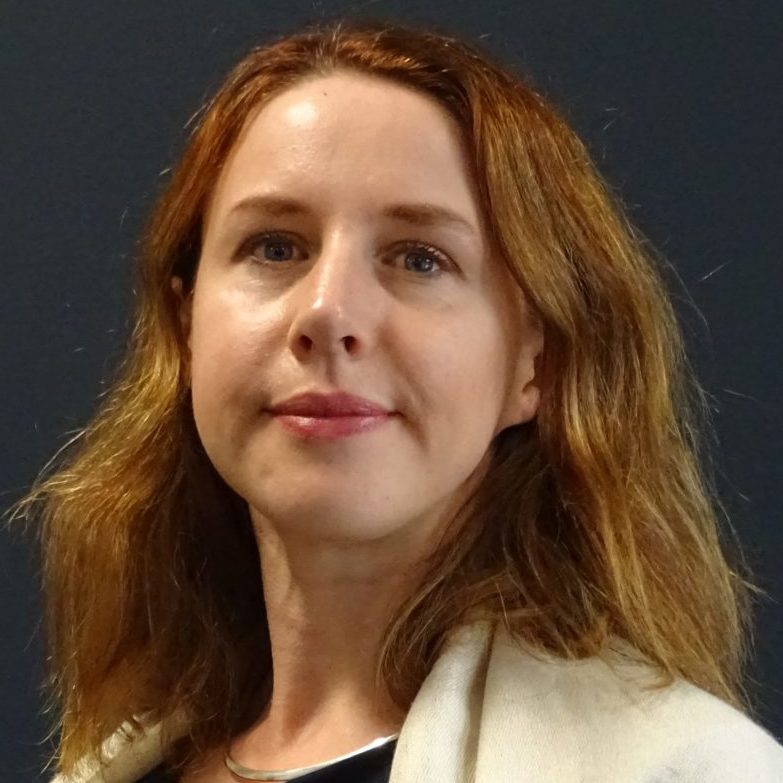System-science in Public Health and Health Economic Research
UKPRP award £5 million for 5 years, with an additional £1.2 million investment from the consortium’s partners
SIPHER aims to develop systems-based economic evaluation methods and tools to provide a common basis on which to appraise the effectiveness and costs and benefits of policy measures implemented in different sectors.

Petra Meier
Professor of Public Health
MRC/CSO Social & Public Health Sciences Unit, University of Glasgow
Petra Meier’s research focuses on the appraisal and evaluation of public health policy. She founded the Sheffield Alcohol Research Group, a leading international centre for alcohol policy, epidemiology and economic research, and is particularly known for her work on alcohol minimum unit pricing and taxation. She led a successful bid for a Wellcome Trust DTC in Public Health Economics and Decision Science which builds research capacity in public health economic and modelling methods and is a co-investigator on the MRC Postdoctoral Fellowship Programme on Systems Science in Public Health and on an ongoing $1.8m US NIH RO1 agent-based modelling grant led by Robin Purshouse.

Julian Cox
Head of Research
Greater Manchester Combined Authority
Julian is Head of Research at the Greater Manchester Combined Authority (GMCA), and a Co-Director for the SIPHER consortium. The GMCA research team supports policy makers across a broad range of thematic areas – including health, housing, the economy, crime, social services, employment and skills, and the environment – by providing data, evidence and insight to support decision-making. Julian also leads GMCA’s work on cost benefit analysis, helping commissioners maximise the value for money of the investment in public services.

Corinna Elsenbroich
Reader in Computational Modelling
Corinna is a Reader in Computational Modelling at Glasgow University (MRC/CSO Social & Public Health Sciences Unit). Corinna is interested in methodological and epistemological aspects of novel methods, in particular computational methods such as agent-based modelling and social simulation, and has published on aspects of ontology, explanatory power and context validity in modelling. As a computational modeller she has developed models of dynamic social networks of juvenile delinquency, neighbourhood effects of extortion racketeering and collective reasoning in social dilemma situations. She is particularly interested in complexity sensitive social science methods, comprising computational, case based and participatory methods. As a co-investigator in the Centre for Evaluation of Complexity Across the Nexus (CECAN) she is involved with developing these methods in a policy relevant way. She is currently working on how to combine methods through novel research designs. Corinna has taken on the role of SIPHER Co-Director in September 2021, alongside Petra Meier and Julian Cox.
Our research
SIPHER aims to develop systems-based economic evaluation methods and tools to provide a common basis on which to appraise the effectiveness and costs and benefits of policy measures implemented in different sectors. Partnering with Sheffield City Council, the Greater Manchester Combined Authority (GMCA) and the Scottish Government, this consortium will focus on four policy priorities – housing, the promotion of mental wellbeing, inclusive economic growth and adverse childhood experiences – and differences between these partners’ implementation systems for these policy areas. The research will address a critical area of need on providing economic evidence for policy decision-making by end users, and will provide tools for iterative, evidence-led refinements of policies by considering the emergent properties of complex systems, including interactions between policy measures, when assessing policy impacts.
Drawing on expertise from systems science and engineering, geocomputation, machine learning and multi-criterion optimisation, SIPHER will use complex systems modelling to allow users to understand the nature and timing of policy effects across all relevant outcomes, to forecast what may occur within complex systems under different assumptions about future developments and to assess the distributional impacts of policy scenarios. Economic decision models will make transparent the costs, benefits and any necessary trade-offs.
SIPHER’s co-production approach blends workstreams (WS) that develop a thorough understanding of the four policy systems (WS1 – understanding policy actors, decision processes, and policymaker knowledge and beliefs about cause-and-effect relationships in the systems, WS2 evidence synthesis, WS6 eliciting societal values and preferences regarding competing policy outcomes) with complex systems methods (WS3 building a system monitoring and intelligence function, WS4 microsimulation, WS5 system dynamic modelling, and WS7 whole-system economic evaluation).
On 25 September 2019 the UK Prevention Research Partnership (UKPRP) held a kick off meeting with the award holders from the first funding round. Download the slides presented by SIPHER (PPT, 5MB).
Resources
The resources include:
- 13 inclusive economy indicators, with associated trend data and an interactive mapping function that describe the extent and nature of economic inclusion across all local authorities in Great Britain.
- A Synthetic Population dataset and interactive dashboard that provides access to a ‘digital twin’ of the adult population in England, Scotland and Wales. Combining census and survey data, this tool provides unique insight into the population’s health, socio-economic and living circumstances at high spatial resolution.
- A layered systems map combining published evidence and lived experience perspectives on the relationship between housing and health. Housing and health narrative map
- A digital version of the housing-health systems map created by tenants.
- Video demonstrating how to use the map.
- Housing challenges faced by low income renters evidence review Sept 2022 (PDF, 245 KB)
- The Wider Social Determinants of Mental Health in Scotland: Review of Key Policy Documents and Qualitative Literature (PDF, 1,598KB)
Consortium members
The consortium’s membership includes:
- Research academics who provide expertise in disciplines including public health, system dynamics modelling and microsimulation, economics and health economics, urban studies and planning, and social policy.
- Key policy partners – Sheffield’s Director of Public Health, GMCA’s Head of Research and the Co-lead of the Scottish Government’s Public Health Reform Programme – are embedded as co-investigators in the membership.
- The Alan Turing Institute for expertise in IT infrastructures and spatial microsimulation.
- Practice partners such as Public Health England (PHE), Public Health Wales, NHS Health Scotland, the Local Government Association (LGA), and the National Institute for Health (NICE), Edinburgh City Deal, Learn Sheffield, Sheffield City Partnership and Northern Health Sciences Alliance amongst others.
For further details see the SIPHER website.
Co-investigators
Marion Bain
Co-Director of the Executive Delivery Group for Public Health Reform
Mark Birkin
Professor of Geography and Co-Director of Leeds Institute for Data Analytics
John Brazier
Professor of Health Economics and Dean of the School of Health and Related Research
Alison Heppenstall
Professor in Geocomputation, Leeds Institute for Data Analytics
Nik Lomax
Associate Professor in Data Analytics for Population Research
Ruth Lupton
Professor of Education, Director of the Inclusive Growth Analysis Unit
Suzy Paisley
Information Specialist and Director of Innovation and Knowledge Transfer (IKT)
Knowledge transfer partners
- Brian Ferguson, Chief Economist – Public Health England
- Mark Bellis, Director of the WHO Collaborating Centre for Investment in Health – Public Health Wales
- Neil Craig, Principal Public Health Advisor – NHS Health Scotland
- Gillian Leng, Deputy Chief Executive – NICE
- Oonagh McGee, Head of Research Management – Alan Turing Institute
- Ritchie Somerville, Data Innovation Director – Edinburgh City Deal
- Stephen Betts, Chief Executive – Learn Sheffield
- Rt Hon David Blunkett, Chair – Sheffield City Partnership
- Shirley Hannan, Head of Research Partnerships – Northern Health Sciences Alliance
- Paul Ogden, Senior Advisor – Local Government Association



































